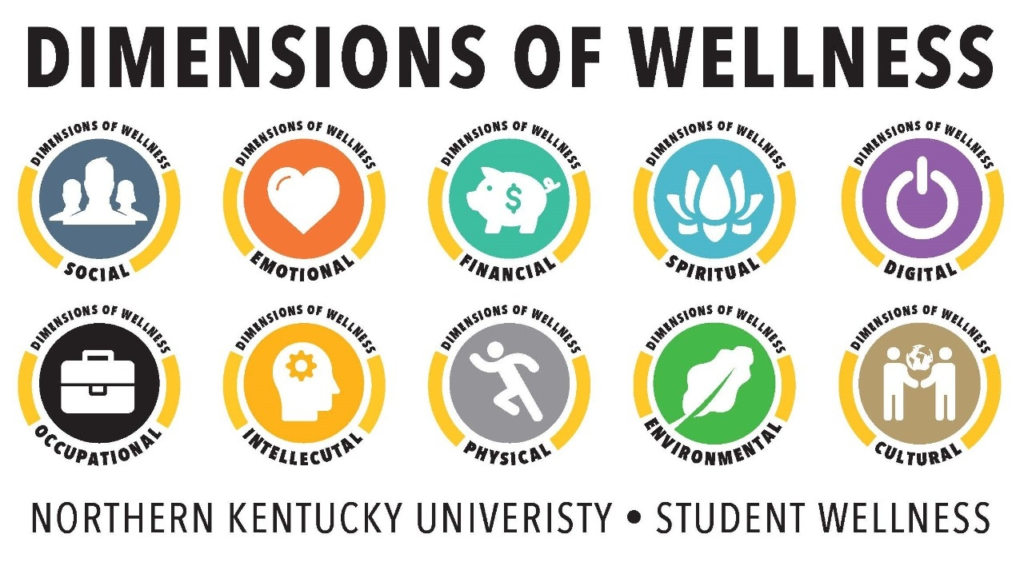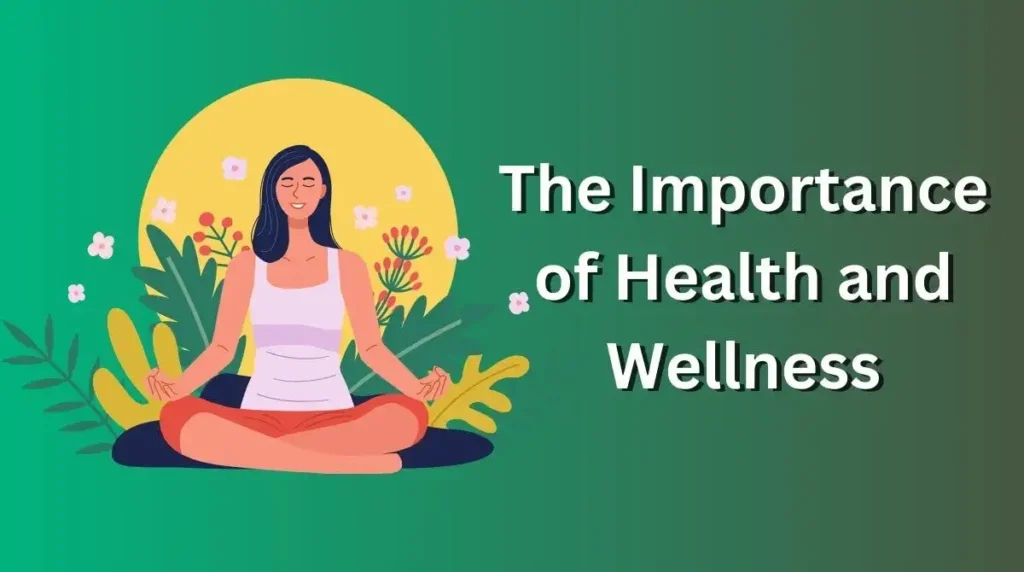Introduction
In today’s fast-paced world, the terms “health” and “wellness” are often used interchangeably, leading to confusion about their true meanings. However, understanding the distinction between the two is crucial for embarking on a journey towards a balanced and fulfilling life. Let’s delve into the essence introduction to health and wellness, exploring their definitions, dimensions, and the holistic approach they entail.
Defining Health and Wellness
The World Health Organization (WHO) offers insightful definitions of health and wellness, illuminating their inherent disparities. Health, as defined by WHO, encapsulates more than just the absence of disease or infirmity. It encompasses a state of complete physical. Mental. And social well-being. Emphasizing the importance of holistic health beyond mere physical health.
On the other hand, wellness is depicted as the active pursuit of optimal health for individuals and groups. It represents a proactive approach to living, acknowledging the interconnectedness of various facets of well-being. Unlike health. Which is a state. Wellness is an ongoing process. Signifying a continuous journey towards achieving one’s fullest potential in all aspects of life.

Distinguishing Health from Wellness
While health serves as a fundamental foundation for wellness, the two concepts diverge in their focus and scope. Health primarily revolves around the physical body and its functioning, encompassing factors such as nutrition, exercise, and the absence of diseases. In contrast, wellness encompasses a broader spectrum of dimensions, including physical, intellectual, emotional, environmental, social, and spiritual well-being.
Consider a scenario where an individual exhibits good physical health, devoid of any major illnesses. Despite this, they may still struggle with emotional turmoil, lack of purpose, or dissatisfaction in other areas of life. This exemplifies the distinction between health and wellness – while one pertains to the body’s state, the other encompasses a multifaceted approach to achieving overall well-being.
Dimensions of Wellness
Wellness, being a multidimensional concept, encompasses various dimensions that collectively contribute to a person’s holistic well-being. These dimensions include:
- Physical Wellness: Focusing on maintaining physical fitness through regular exercise, balanced nutrition, hydration, and adequate sleep.
- Intellectual Wellness: Stimulating the mind through continuous learning, problem-solving, and creative endeavors to foster intellectual growth.
- Emotional Wellness: Cultivating self-awareness, resilience, and empathy to navigate life’s challenges and maintain emotional equilibrium.
- Environmental Wellness: Promoting awareness and responsibility towards creating a healthy and sustainable physical environment, free from hazards.
- Social Wellness: Nurturing meaningful relationships, fostering a sense of belonging, and actively participating in communities for social support and connection.
- Spiritual Wellness: Exploring the deeper meaning and purpose of life, nurturing inner peace, and finding alignment with personal values and beliefs.

Physical Wellness
People who are focused on improving their physical health recognize the need for regular physical activity, they choose healthy foods, go to the doctor, and get adequate sleep. People who are physically well actively make healthy decisions on a daily basis. This may include making a habit of exercising three to five times per week or recording their dietary intake to ensure they are receiving proper nutrition for optional health.
How would you rate your physical wellness and what behaviors could you change, or actions could you take, to positively improve your physical wellness?
Emotional Wellness
Coping effectively with life and expressing emotions in an appropriate manner are keys to emotional wellness. An emotionally well person successfully expresses and manages an entire range of feelings, including anger, doubt, hope, joy, desire, fear, and many others. People who are emotionally well maintain a high level of self-esteem. They have a positive body-image and the ability to regulate their feelings. They know where to seek support and help regarding their mental health, including but not limited to, seeking professional counseling services.
How would you rate your emotional wellness and what behaviors could you change, or actions could you take, to positively improve your emotional wellness?
Social Wellness
People who are focused on their social wellness are striving for positive relationships, developing a sense of connection, belonging, and sustained support system. A socially well person builds healthy relationships based on interdependence, trust, and respect. Those who are socially well have a keen awareness of the feelings of others. They develop a network of friends and co-workers who share a common purpose, and who provide support and validation.
How would you rate your social wellness and what behaviors could you change, or actions could you take, to positively improve your social wellness?
Environmental Wellness
Environmental wellness includes a desire to positively impact our planet Earth and also our local community by striving to occupy pleasant, healthy, and safe environments that support well-being and positively impact the quality of our surroundings (including protecting and preserving nature). An environmentally well person appreciates the external cues and stimuli that an environment can provide . People who have achieved environmental wellness recognize the limits to controlling an environment and seek to understand the role an individual plays in the environment.
How would you rate your environmental wellness and what behaviors could you change, or actions could you take, to positively improve your environmental wellness?
Financial Wellness
Financial wellness refers to achieving satisfaction with current and future financial situations by handling finances wisely. Those who are financially well are fully aware of their current financial state. They set long- and short-term goals regarding finances that will allow them to reach their personal financial goals.
How would you rate your financial wellness and what behaviors could you change, or actions could you take, to positively improve your financial wellness?
Intellectual Wellness
Intellectual wellness includes being open-minded, recognizing creative abilities, and/or finding ways to expand knowledge and skills. Those who enjoy intellectual wellness engage in lifelong learning. They seek knowledge and activities that further develop their critical thinking and heighten global awareness. They engage in activities associated with the arts, philosophy, and reasoning.
How would you rate your intellectual wellness and what behaviors could you change, or actions could you take, to positively improve your intellectual wellness?
Occupational Wellness
Occupational wellness refers to personal fulfillment and enrichment from one’s work and/or responsibilities. An occupationally well person enjoys the pursuit of a career which is fulfilling on a variety of levels. This person finds satisfaction and enrichment in work, while always in pursuit of opportunities to reach the next level of professional success.
How would you rate your occupational wellness and what behaviors could you change, or actions could you take, to positively improve your occupational wellness?
Spiritual Wellness
Spiritual wellness refers to having a sense of purpose and meaning in life, this may come from establishing peace, harmony, and balance in our lives. People who can be described as spiritually well have identified a core set of beliefs that guide their decision making, and other faith- based endeavors. While firm in their spiritual beliefs, they understand others may have a distinctly different set of guiding principles. They recognize the relationship between spirituality and identity in all individuals.
How would you rate your spiritual wellness and what behaviors could you change, or actions could you take, to positively improve your spiritual wellness?
Cultural Wellness
Cultural wellness refers to the way you interact with others who are different from you. This includes understanding and celebrating our differences. Culturally well people are aware of their own cultural background, as well as the diversity and richness present in other cultural backgrounds. Cultural wellness implies understanding, awareness and intrinsic respect for aspects of diversity. A culturally well person acknowledges and accepts the impact of these aspects of diversity on sexual orientation, religion, gender, racial and ethnic backgrounds, age groups, and disabilities
How would you rate your cultural wellness and what behaviors could you change, or actions could you take, to positively improve your cultural wellness?
The Importance of Wellness
Understanding the significance of wellness goes beyond mere physical health – it encompasses a holistic approach to living that enriches every aspect of life. By embracing wellness, individuals can proactively engage in activities and practices that promote their overall well-being, leading to a more fulfilling and vibrant existence.

Also Read : 2024 Holi Date, significance, timing, history and more
Conclusion
In essence. Health and wellness are integral components of a balanced and fulfilling life. Each playing a distinct yet interconnected role in achieving optimal well-being. While health lays the foundation for wellness. The latter embodies an ongoing journey of self-discovery. Growth. And holistic nourishment across various dimensions of life.
As we embark on the path to well-being. Let us embrace the holistic nature of wellness. Recognizing its transformative power to enrich our lives and cultivate a profound sense of vitality and fulfillment.
Through conscious choices. Proactive practices. And a commitment to self-care. We can navigate the intricacies of health and wellness. Empowering ourselves to lead lives that are not only healthy but also deeply meaningful and purposeful.
By embracing the essence of health and wellness. We embark on a journey of self-discovery and transformation. Unlocking our fullest potential and embracing a life of vitality. Joy. And well-being.
Introduction to health and wellness is not just a concept but a way of life – a philosophy that invites us to explore the depths of our being. Cultivate balance and harmony, and embrace the interconnectedness of mind, body, and spirit in our quest for optimal well-being.




